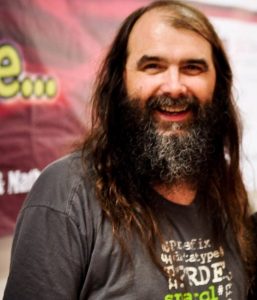We have 2 presentations on the 13th March focusing on Tangible interfaces by Laura Pruszko and Anna Carter.
Talk 1: Designing for Modularity – a modular approach to physical user interfaces
Abstract:
Designing for Modularity – a modular approach to physical user interfaces by Laura Pruszko
Physical user interfaces, future or history? While some of our old physical UIs get progressively replaced by their graphical counterparts, humans still rely on physicality for eye-free interaction. Shape-changing user interfaces — i.e. physical devices able to change their shape to accommodate the user, the task, or the environment – are often presented as a way to bridge the gap between the physicality of physical user interfaces and the flexibility of graphical user interfaces, but they come with their fair share of challenges. In this presentation, we will talk about these challenges under the specific scope of modular shape-changing interfaces: how do we design for modularity? What is the impact on the user? As these kinds of interfaces are not commonplace in our everyday lives, they introduce novel usability considerations for the HCI community to explore.
Bio:
Laura Pruszko is a lecturer in the Applied Computer Games department of Glasgow Caledonian University. Her research focuses on interaction with physical user interfaces and modular systems. She obtained her PhD from Grenoble Alpes University in 2023, as part of the multidisciplinary Programmable Matter consortium. This consortium brings together people from different horizons such as artists, entrepreneurs, HCI and robotics researchers, to collaborate towards enabling the long-term vision of Claytronics.
Talk 2: Sense of Place, Cultural Heritage and Civic Engagement
Abstract:
In this presentation, I will provide an overview of my recent work, where I implemented a range of interactive probes, exploring sense of place and cultural heritage within a regenerating city centre. Through these digital multimodal interactions, citizens actively participated in the sharing of cultural heritage, fostering a sense of belonging and nostalgia. Looking ahead, I’ll discuss how these insights inform my ongoing work at the intersection of the Digital Civics project and the Centre for Digital Citizens project. This presentation will not only offer my personal insights but also open the floor for collaborative discussions on integrating these crucial aspects into future embedded research.
Bio:
Anna Carter is a Research Fellow at Northumbria University she has extensive experience in designing technologies for local council regeneration programs, her work focuses on creating accessible digital experiences in a variety of contexts using human-centred methods and participatory design. She works on building Digital Civics research capacities of early career researchers as part of the EU funded DCitizens Programme and on digital civics, outdoor spaces and sense of place as part of the EPSRC funded Centre for Digital Citizens.
Event details:
- When: 13th March 2024 12:00 – 14:00. There’ll be cakes and soft drinks from 12 onwards. The talks will be from 12:30 – 13:30
- Where: Jack Cole 1.33 (Soft drinks and cake provided by F&D)







